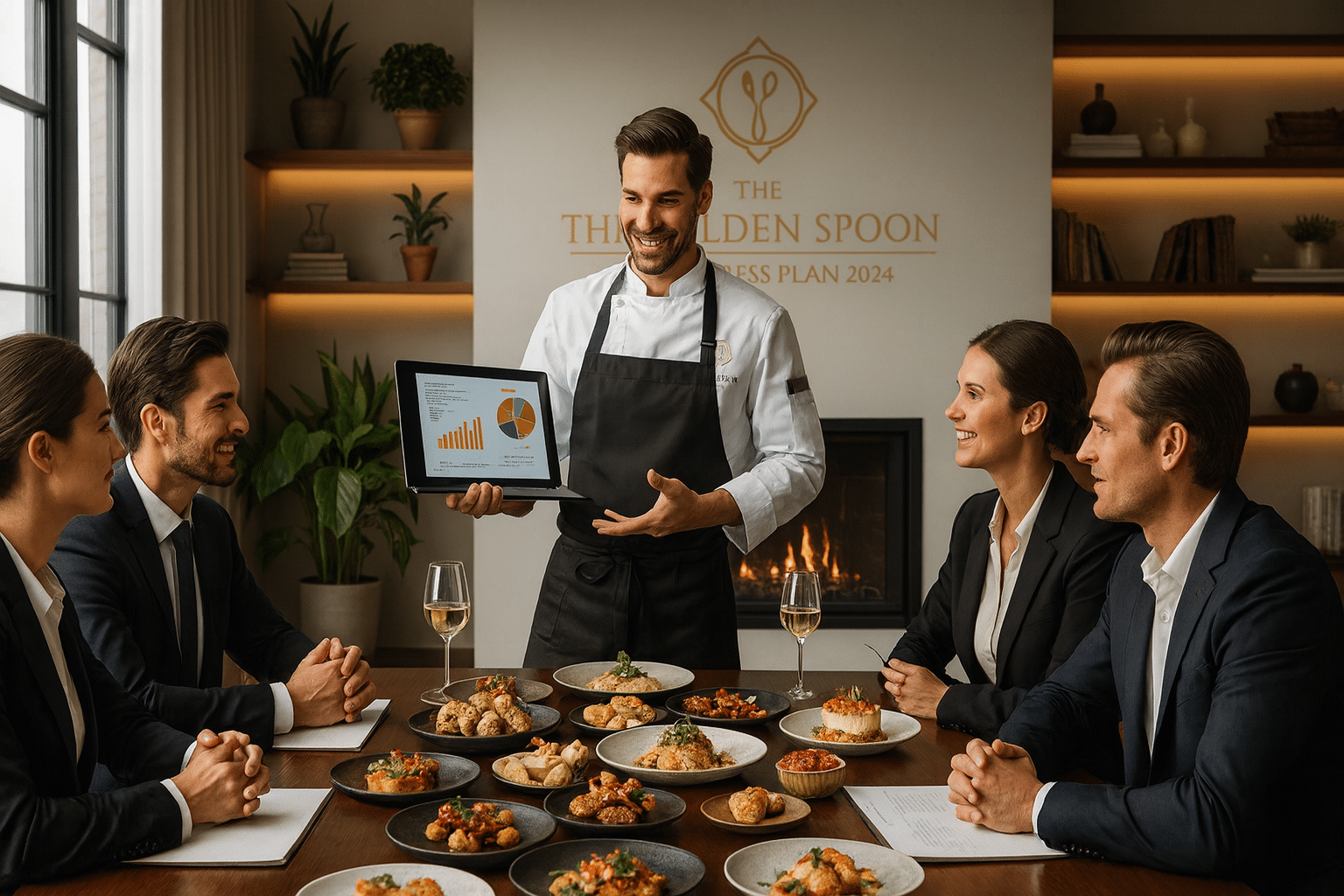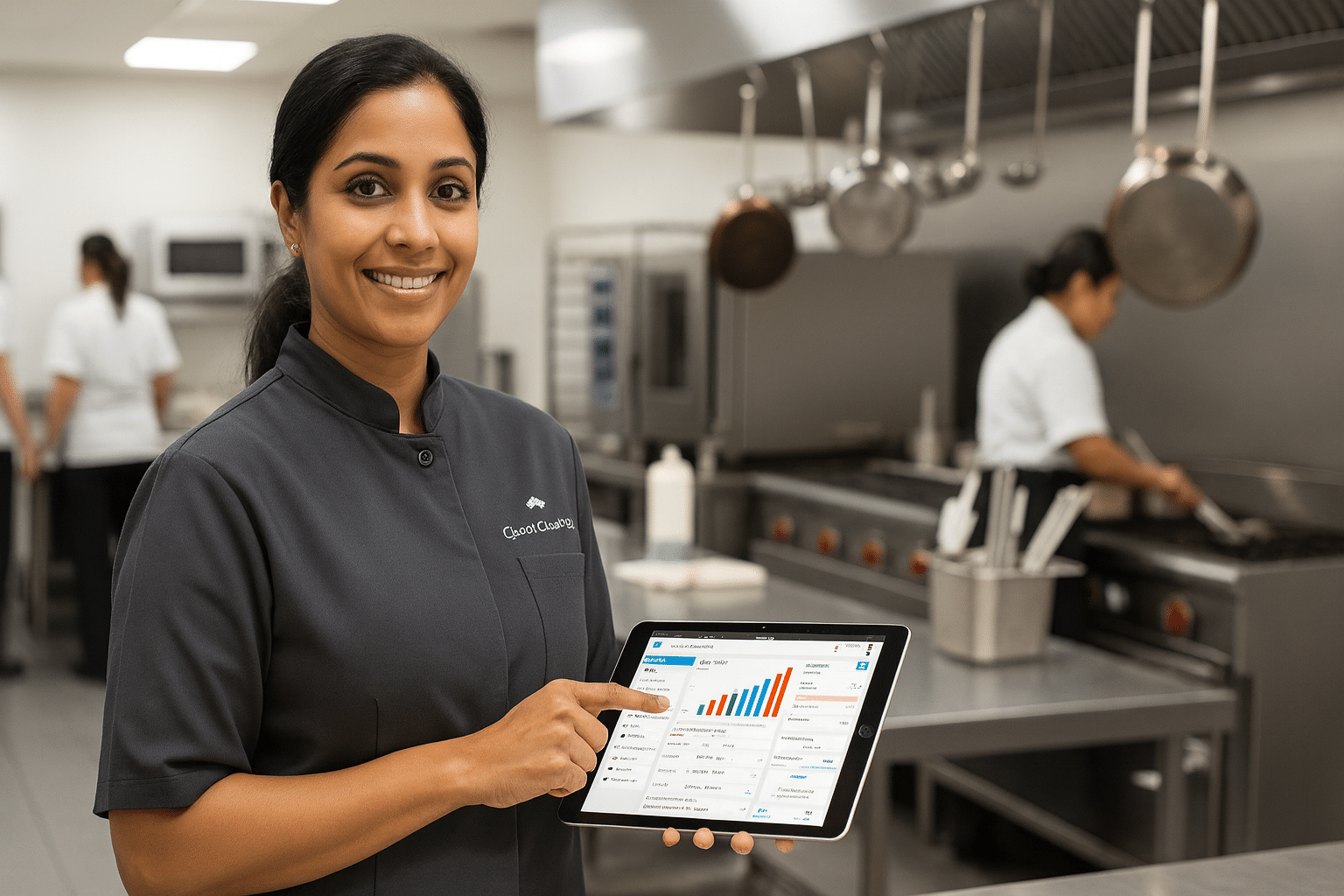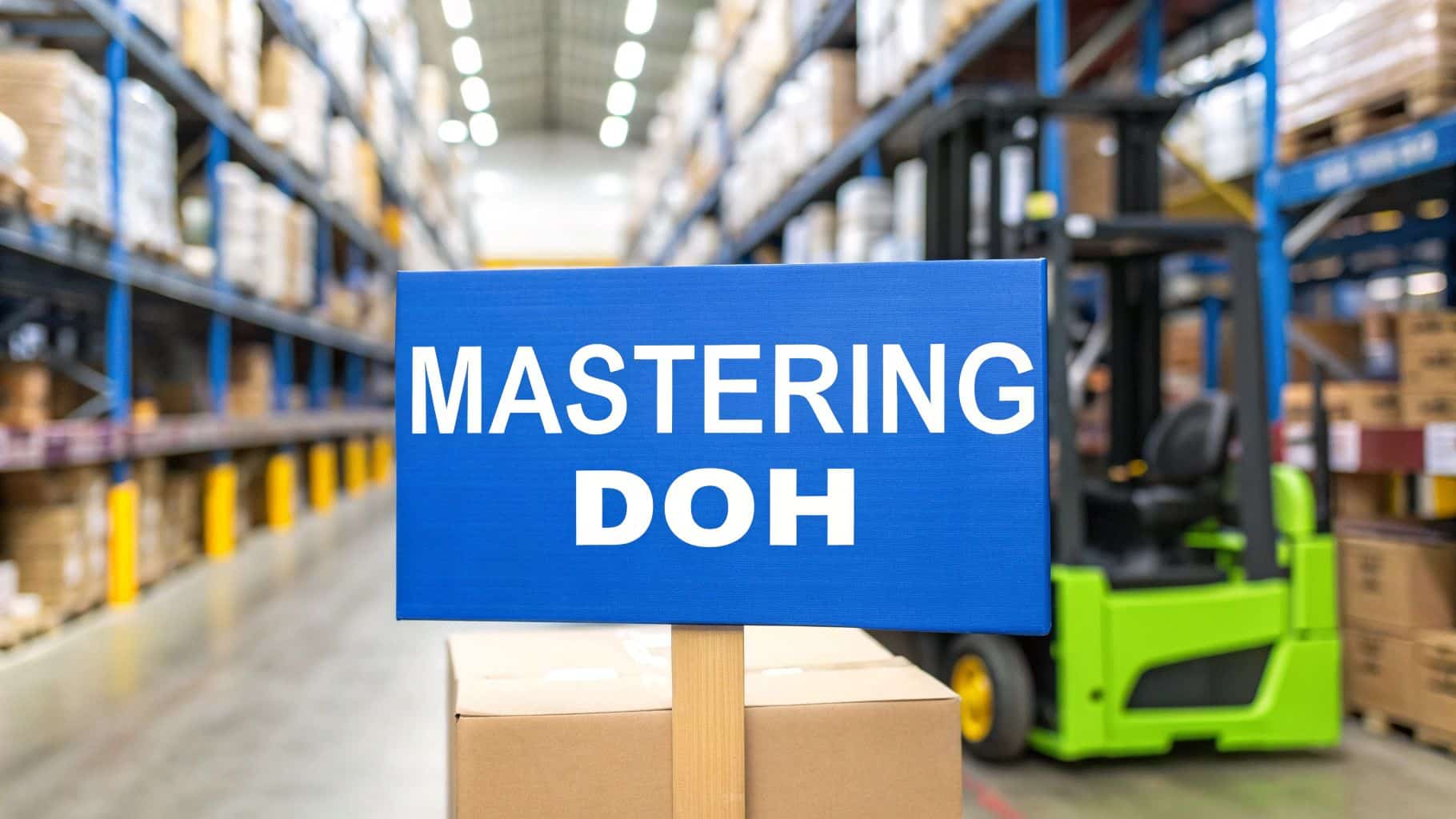Running a catering business means juggling multiple moving parts—menus, events, staff, payments, and customer expectations. Without the right tools, it can feel overwhelming. That’s where catering POS software comes in. By centralizing operations into one powerful system, catering POS software features give businesses the structure and flexibility they need to thrive. From order scheduling to payment processing, these features streamline workflows, reduce mistakes, and make life easier for caterers. Let’s dive into the details and explore what makes a catering POS system essential for modern catering businesses.
Table of Contents
- Event Management Made Simple
- Menu Customization and Order Scheduling
- Payment Processing and Billing Automation
- Staff Scheduling and Operations Management
- Analytics, Reporting, and Multi-Location Support
- Why Biyo POS is the Smart Choice for Caterers
- Frequently Asked Questions
Event Management Made Simple
A catering business thrives on successful event planning. Catering POS software features help caterers organize events from the ground up, ensuring that nothing falls through the cracks. From tracking client preferences to managing guest counts, the right tools streamline complex workflows and improve efficiency.
Client Database and Contract Management
Keeping track of client information is vital for any catering business. With a client database built into catering POS software, businesses can easily manage details such as dietary restrictions, preferred menus, and contact information. This centralized hub prevents miscommunication and ensures that every client feels valued.
Another key aspect is contract management. Traditional catering operations often rely on paper contracts or scattered digital files, which can be hard to manage. Catering POS software features include digital contract management, allowing caterers to create, send, and store contracts within the system. This makes it easier to finalize agreements and keep everything organized.
When both the client database and contracts are stored in one place, teams save time and reduce the risk of costly errors. For example, if a client has a signed agreement that specifies vegan meals for 200 guests, the system links that requirement to the event order automatically. This ensures smooth execution and customer satisfaction.
Beyond storing contracts, integration with client profiles adds another layer of personalization. This makes repeat business more likely, as caterers can anticipate preferences based on past events.
Guest Count Tracking
Guest count tracking is one of the most important catering POS software features. Without accurate guest counts, it’s impossible to manage food preparation, staff allocation, or budget planning effectively. A POS system eliminates guesswork by linking guest numbers directly to event orders and schedules.
This feature allows caterers to adjust menus, portion sizes, and delivery logistics in real time. For instance, if the guest list increases from 150 to 175, the system immediately updates inventory needs and staff requirements. This proactive approach prevents last-minute stress and ensures that the catering team delivers exactly what’s needed.
Accurate guest count tracking also supports cost tracking. By aligning expenses with confirmed attendance, businesses avoid waste while keeping profitability intact. It’s a simple yet powerful feature that enhances overall efficiency.
Guest tracking tools also integrate with billing automation, ensuring that invoices reflect the correct number of attendees. This creates transparency and builds trust with clients.
Event Scheduling Tools
Scheduling is the backbone of catering. Catering POS software features include event scheduling tools that keep everything running on time. Instead of juggling multiple spreadsheets or calendars, caterers can rely on one platform to manage dates, times, and staff assignments.
These scheduling tools help allocate resources more effectively. For example, if two events are scheduled on the same day, the system identifies potential conflicts and helps managers assign staff accordingly. This prevents overbooking and ensures smooth execution.
Event scheduling also integrates with kitchen display systems, delivery management, and staff scheduling. This creates a seamless flow of information across departments, minimizing miscommunication and maximizing efficiency. By using event scheduling features, caterers gain control over even the most complex timelines.
The scheduling component also makes it easy to send reminders to staff and clients. This ensures that everyone is on the same page before the event begins.

Menu Customization and Order Scheduling
Menus are at the heart of catering, and every event demands flexibility. Catering POS software features make it easy to customize menus, track ingredients, and schedule orders in advance. This ensures that every event feels unique while maintaining operational consistency.
Menu Customization
Catering POS software allows caterers to build flexible menus tailored to client needs. This feature is essential for handling requests like vegan options, gluten-free dishes, or themed meals. By storing customizable menu templates, businesses save time while still delivering personalized experiences.
Custom menus also reduce the risk of miscommunication between the sales team and kitchen staff. Once a menu is approved, it’s synced with the kitchen display system, ensuring accuracy and efficiency. This eliminates confusion and ensures that every dish matches the client’s expectations.
Menu customization tools also integrate with inventory tracking. When an item is added to a menu, the system automatically updates ingredient requirements. This prevents shortages and supports cost-effective purchasing decisions.
Clients benefit too, since they can review menus digitally before confirming. This adds a professional touch and builds confidence in the service.
Order Scheduling
Order scheduling is a critical part of catering operations. With catering POS software, caterers can plan orders weeks or even months in advance. This allows teams to prepare ingredients, coordinate with suppliers, and assign staff well ahead of time.
By linking scheduled orders with inventory and staff calendars, caterers can spot potential issues early. For example, if a large order requires more ingredients than the inventory allows, the system flags the shortage. This gives businesses time to reorder and avoid last-minute disruptions.
Order scheduling also improves customer satisfaction. Clients appreciate knowing that their orders are locked in and organized, which gives them peace of mind leading up to the event.
These scheduling features also integrate with delivery management systems, ensuring that food arrives on time and in perfect condition.
Kitchen Display System Integration
A kitchen display system (KDS) is one of the most useful catering POS software features. Instead of relying on paper tickets or verbal communication, orders are displayed digitally in the kitchen. This streamlines preparation and reduces errors.
For example, when a client updates an order, the KDS reflects the change instantly. This ensures that the kitchen team works with the latest information, minimizing mistakes and wasted resources. The result is faster turnaround times and better quality control.
Integration between KDS and menu customization also improves staff efficiency. Chefs can see exactly what’s required for each event, along with dietary notes or special requests. This level of detail helps teams deliver flawless results, even under pressure.
KDS systems also track preparation times, giving managers insights into workflow efficiency. This data supports real-time reporting and future planning.
Payment Processing and Billing Automation
Catering businesses deal with complex financial transactions. From deposits to final invoices, accuracy is non-negotiable. Catering POS software features include payment processing and billing automation tools that make finances seamless and secure.
Payment Processing
Clients expect convenient and secure payment options. Catering POS systems support multiple payment methods, including credit cards, digital wallets, and mobile payments. This flexibility improves client satisfaction and speeds up the payment process.
Payment processing features also support tip management. By integrating gratuities into the payment system, caterers can distribute tips fairly among staff. This improves morale and creates a transparent compensation structure.
Security is another key advantage. With encryption and fraud detection, businesses protect both themselves and their clients. This builds trust and ensures compliance with industry standards.
Invoice Generation
Invoice generation is one of the most valuable catering POS software features. Manual invoicing is slow and error-prone, but automated systems create professional invoices in seconds. This speeds up cash flow and reduces administrative stress.
Invoices are linked to client profiles, contracts, and guest counts, ensuring accuracy. If a client adds more guests, the system updates the invoice automatically. This transparency prevents disputes and keeps the client relationship strong.
Digital invoicing also saves time for both the caterer and client. With just a few clicks, invoices can be shared via email or client portals, eliminating paperwork and delays.
Billing Automation
Billing automation goes beyond invoice generation by managing recurring payments, deposits, and adjustments automatically. This reduces the workload for accounting teams and minimizes the risk of human error.
For example, when a client pays a deposit, the system records it and adjusts the remaining balance. When the event concludes, the final invoice reflects all payments accurately. This streamlined process builds trust and eliminates billing confusion.
Billing automation also integrates with cost tracking features, allowing businesses to align financial data with operational expenses. This provides a clear picture of profitability for every event.
Staff Scheduling and Operations Management
Behind every successful event is a well-coordinated team. Catering POS software features include staff scheduling and operational management tools that ensure everyone works in harmony. This creates efficiency, reduces stress, and keeps service levels high.
Staff Scheduling
Staff scheduling tools allow managers to assign shifts, track hours, and adjust workloads in real time. Instead of manual scheduling, which can lead to errors, the POS system provides a clear overview of staff availability and assignments.
By aligning staff schedules with event requirements, businesses ensure that they always have the right number of people on-site. For example, a 50-guest lunch requires fewer staff than a 300-guest wedding, and the system makes that distinction clear.
Staff scheduling also integrates with payroll and tip management features. This ensures that staff members are compensated accurately and on time, boosting morale and loyalty.
Delivery Management
Delivery management is a critical part of catering operations. Catering POS software features include delivery tracking tools that help businesses plan routes, schedule drop-offs, and ensure food arrives fresh.
These tools reduce inefficiencies by integrating with order schedules and event timelines. If an event starts at 6 PM, the system calculates delivery time accordingly, leaving enough room for setup. This eliminates delays and improves customer satisfaction.
Delivery management also provides real-time tracking for both staff and clients. By sharing updates, caterers reassure clients that their event is on track and professionally managed.
Customer Communication
Clear communication is essential for building trust with clients. Catering POS software features include communication tools that allow caterers to send updates, reminders, and confirmations. This keeps clients engaged throughout the event planning process.
For instance, clients can receive automated notifications when invoices are ready, when menus are updated, or when delivery is on the way. This reduces the need for manual follow-ups and ensures transparency.
Customer communication tools also integrate with CRM features, making it easier to personalize messages. This level of attention strengthens relationships and encourages repeat business.
Analytics, Reporting, and Multi-Location Support
Data-driven decision-making is crucial for catering businesses that want to grow. Catering POS software features include analytics, reporting, and support for multi-location operations. These tools help managers spot trends, optimize costs, and expand strategically.
Real-Time Reporting
Real-time reporting is a powerful feature that gives managers instant insights into sales, expenses, and inventory. Instead of waiting for end-of-month reports, caterers can monitor performance as it happens. This agility helps them make better decisions quickly.
For example, if a particular menu item isn’t selling, managers can adjust the offering immediately. Or if ingredient costs spike, reports highlight the issue, allowing teams to renegotiate with suppliers. These real-time insights directly improve profitability.
Real-time reporting also enhances client transparency. Businesses can share relevant metrics with clients, such as guest counts or dietary breakdowns, reinforcing professionalism and accuracy.
Cost Tracking
Cost tracking is essential for maintaining profitability in catering. Catering POS software features include detailed expense monitoring, covering everything from ingredients to labor. By tracking costs in real time, managers gain a clear picture of financial performance for each event.
This feature also supports forecasting. If a wedding requires $15 per guest in food costs, the system calculates total expenses based on the guest count. This ensures accurate budgeting and prevents overspending.
Cost tracking also integrates with billing automation and invoice generation. This ensures that client charges reflect actual expenses, protecting margins while maintaining transparency.
Multi-Location Support
For catering businesses with multiple locations, managing operations can be challenging. Catering POS software features include multi-location support that centralizes management across branches. This ensures consistency and efficiency, no matter how large the operation grows.
With this feature, managers can monitor inventory, staff schedules, and financial performance across different sites in one dashboard. This saves time and creates better oversight. For instance, if one location runs low on supplies, managers can quickly redistribute stock from another branch.
Multi-location support also helps standardize processes, ensuring that every event meets the same high standards. Clients receive consistent service whether they book in one city or another, building trust and brand loyalty.

Why Biyo POS is the Smart Choice for Caterers
Biyo POS brings all these catering POS software features into one powerful, user-friendly platform. Designed for caterers, it covers everything from event scheduling to payment processing. With features like real-time reporting, kitchen display systems, and mobile POS support, Biyo POS simplifies catering operations and reduces stress. Whether you’re managing a small local catering business or scaling across multiple locations, Biyo POS gives you the tools you need to succeed.
Frequently Asked Questions
What is catering POS software?
Catering POS software is a system designed to manage catering operations. It combines event management, menu customization, staff scheduling, and payment processing into one platform. This makes it easier for caterers to organize events, track costs, and deliver great service.
How does catering POS software help with billing?
Catering POS software features include billing automation and invoice generation. These tools create accurate invoices, manage deposits, and track balances automatically. This reduces errors and saves time for both caterers and clients.
Can catering POS software handle multiple locations?
Yes, many systems include multi-location support. This feature allows businesses to manage inventory, staff, and financial data across multiple sites from one dashboard. It ensures consistency and efficiency for catering businesses that want to scale.
Why is real-time reporting important in catering?
Real-time reporting gives caterers instant insights into sales, expenses, and guest counts. This helps managers make better decisions, reduce waste, and improve profitability. It also supports transparency with clients by providing accurate data during event planning.
Does Biyo POS offer catering POS software features?
Yes, Biyo POS includes all the essential catering POS software features. From order scheduling and inventory tracking to payment processing and real-time analytics, it helps caterers streamline operations and deliver excellent service at every event.




